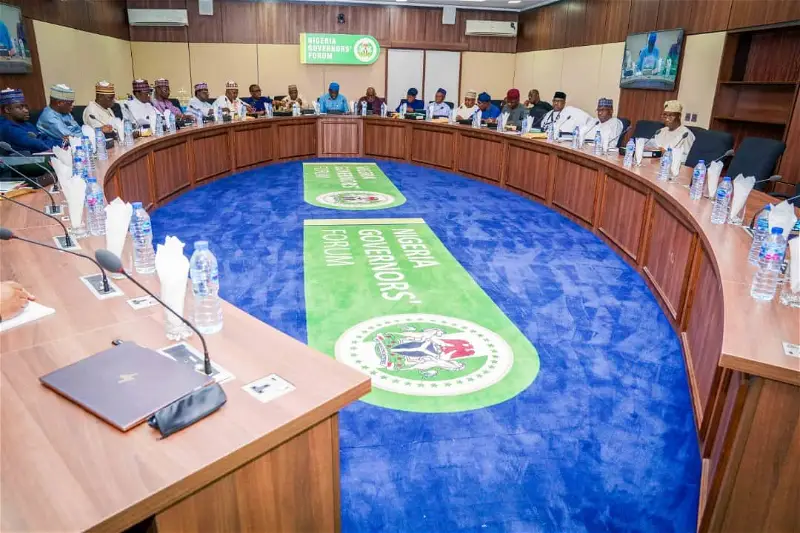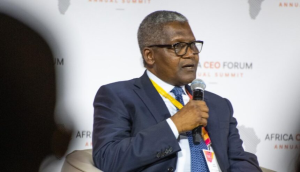
Southern Nigerian governors, under the Southern Governors’ Forum, have called for each state to independently negotiate its minimum wage in response to the ongoing national wage crisis. This appeal was made as part of a 16-point communique issued yesterday, which emphasizes fiscal federalism and the need for wage policies reflective of local living costs.
The Nigerian Governors’ Forum (NGF) met in Abuja and committed to continued negotiations with key stakeholders to resolve the minimum wage issue. “We remain dedicated to the process and assure that better wages will result from the ongoing negotiations,” said Kwara State Governor AbdulRahman AbdulRazaq, NGF chairman.
Present at the meeting were governors and deputy governors from Oyo, Zamfara, Anambra, Delta, and other states, discussing strategies to address workers’ demands.
President Bola Tinubu, unusually present at a National Economic Council (NEC) meeting typically chaired by Vice President Kashim Shettima, refrained from commenting on the new minimum wage. Meanwhile, labour leaders have voiced growing unrest among workers over delays in reaching a new wage agreement, warning of potential industrial action if the process is not expedited.
“The delay is causing significant frustration among public and private sector workers,” a labour leader told Vanguard. “They are suffering from the effects of fuel subsidy removal and inflation without relief in sight.”
Negotiations for a new minimum wage have seen the government’s offer rise from N60,000 to N62,000, while labour has reduced its demand from N494,000 to N250,000. The inability to reach an agreement led to an indefinite strike on June 3, 2024, which was temporarily lifted after assurances from President Tinubu.
Reports indicate that workers are pressing for more immediate action, citing unfulfilled promises of palliatives and increased living costs. “Workers are urging us to take action,” said Prince Adewale Adeyanju, President-General of the Maritime Workers Union of Nigeria, adding that the delay has made workers “restive.”
The Senior Staff Association of Nigerian Universities (SSANU) has criticized the government’s slow approach. SSANU President Comrade Mohammed Ibrahim stressed, “The President should have completed consultations before now. Delays only heighten frustration among workers who are struggling with the current economic realities.”
As negotiations continue, there is a pressing call from both labour and governors for a swift resolution to alleviate the economic pressures on Nigerian workers.








